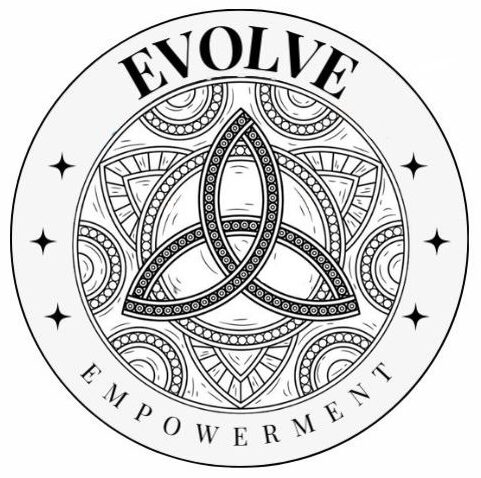Comfort zones are like those favorite cozy sweaters that fit just right. We all have them, even if they’re a bit frayed around the edges. So, what’s a comfort zone? At its core, it’s a psychological state where activities and situations feel familiar, with minimal stress involved. It’s where we can kick back and relax, knowing exactly what to expect.
Comfort zones come with some classic characteristics. They often involve routines and habits we’ve built over time, offering a sense of predictability and security. You know, that feeling when you walk into a room of people you already know versus a room full of strangers? That’s your comfort zone doing its thing.
The safety and familiarity have roots in the brain’s wiring. Our minds crave stability and tend to resist stepping into uncharted territory. It’s human nature. The amygdala, that little almond-shaped cluster in our brain, plays a big role by triggering fight-or-flight responses when facing the unknown. But in the comfort zone, it’s at rest, letting us chill out a bit.
Why do we gravitate towards our comfort zones? Well, they’re stress-free zones where anxiety fades away. After all, change is scary, right? But sometimes, sticking to our comfort zones can keep us from experiencing growth and exploration.
The Science of Comfort: Evolution’s Role
Comfort zones aren’t just a modern-day construct; they’re deeply rooted in our evolutionary biology. Our ancestors developed these safety spots for some pretty crucial reasons. It was all about survival—keeping a safe distance from threats, gathering around the fire they knew wouldn’t burn them, and sticking with the crowd that wouldn’t lead them astray.
The brain has a say in this, too. When we step into familiar scenarios, dopamine, the happy chemical, gets a gentle nudge, hinting that we’re playing it safe, which was essential back when there were saber-tooth tigers lurking around. Comfort zones, then, were a safe haven from potential threats.
So, what’s the evolutionary advantage here? Well, sticking to what’s known kept our forebears alive long enough to pass on their genes. It’s a primal instinct that ensured they didn’t wander too far from safety and into danger. It’s about risk management and ensuring survival, a principle that’s still baked into our DNA today.
Now, let’s not forget the brain’s craving for comfort isn’t bad. It’s just trying to find a balance—helping with day-to-day stress while encouraging a smidge of growth. It’s the tension between these two that’s the sweet spot for humans today, where we can grow while staying reasonably secure.
Harnessing this evolutionary instinct effectively is about understanding when to stay put and when to push the boundaries a little. After all, knowing the brain is wired this way can help us better manage how we cope with stress and encourage positive change.

Comfort Zone As a Double-Edged Sword: Pros and Cons
Staying cozy and stress-free inside our comfort zones is like having a trusty old playlist. It’s predictable and relaxing. These zones are proven stress-busters where we recharge and regroup, giving our brain a much-needed break from the constant hustle.
But sticking too long in the familiar can turn into a bit of a trap. Comfort can dull our senses to new experiences and curb personal growth. Think of it as the Netflix autoplay function—before you know it, opportunities have scrolled right past while you stay glued to the same series.
Listening to personal stories, you hear mixed reviews. Many folks out there have loved having their comfort zone as their go-to refuge during tough times. At the same time, many realized they hit a mental plateau after a while, craving something more on their plate.
Recognizing when a comfort zone starts limiting you is like detecting when chocolate cake stops being a treat and turns into a habit—mindful self-awareness is the key. It’s about knowing when to pause, enjoy the familiar, and then step out towards new adventures.
The goal here isn’t to say goodbye to comfort zones altogether. It’s about using them wisely, like a cozy home base to launch new explorations from. Figuring out the right balance will let you soak up the goodness of security while still catching those growth spurts when they come knocking.
A very good opportunity to get out of your comfort zone is to consider this area, which can give you the greatest opportunity to grow in the field of affiliate marketing.

Steps to Stretch and Expand Your Comfort Zone
Expanding your comfort zone is like building a new wing onto your personal space. It doesn’t mean tearing down what’s already there; it’s about adding room for more experiences. Taking the first step usually involves dipping your toes into slightly unfamiliar waters, and trust me, you don’t have to dive in all at once.
Start by setting tiny, manageable goals. Small is good here—it’s all about building momentum without overwhelming yourself. Say you’ve always wanted to try public speaking but get stage fright. Begin by speaking up in a small group where you feel relatively comfortable and gradually increase your audience size. It’s those baby steps that add up over time to giant leaps.
Hearing from folks who’ve walked this path can be crazy inspiring. Check out case studies of people who’ve broken out of their shells. Maybe it was someone who took cooking classes to conquer their kitchen fears or started traveling solo to explore the world. These stories can be like handy road maps, offering direction and hope.
Worries and fears are part of the package deal when you push boundaries. The trick is not to squash them, but to recognize and work with them. Naming fears and dissecting them reminds us they’re not insurmountable blocks, but rather ideas we can reshape and manage.
Embrace every step and trust in the process. Each time you stretch that comfort zone, you’re giving yourself a chance to learn and grow. Before you know it, today’s discomfort will become tomorrow’s newfound peace, marking progress you can be proud of.
Read more about the comfort zone here: How Your Comfort Zone Shapes Your Mindset And Growth.

Embracing Discomfort: Long-term Life Impact and Benefits
Stepping outside the comfort zone can be transformative. Embracing discomfort isn’t just about braving the unknown; it’s about unlocking potential you might not even know you have. Every awkward attempt at something new paves the path for growth.
Countless individuals have reaped success by daring to experience discomfort. Real-life examples abound, from entrepreneurs who took a leap of faith to individuals who adopted healthier lifestyles by starting with small, uneasy changes. These stories aren’t just inspiring; they highlight the tangible benefits of venturing out.
The ripple effects are profound. Professionally, getting comfortable with discomfort can lead to fresh opportunities—think new roles or creative projects. Personally, it builds resilience, empathy, and a keener self-awareness, all of which enhance the personal journey.
The beauty here is in the balance. It’s not about seeking discomfort just for kicks. It’s about recognizing that the moments of unease are points where life pivots and leads to unexpected and rewarding paths.
Looking ahead, how we engage with comfort zones might well influence not only personal trajectories but societal progress too. As more folks bravely step out, it enriches communities, inspiring collective growth and fostering environments where challenging the norm becomes, well, the norm.
FAQ – Comfort Zone & Personal Growth
1. What is a comfort zone in psychology?
A comfort zone is a mental state where a person feels safe, in control, and experiences low levels of stress and anxiety. It’s characterized by familiarity, routine, and predictability.
2. Why is it hard to leave your comfort zone?
Leaving the comfort zone triggers the brain’s fear response, primarily through the amygdala, which perceives the unfamiliar as risky. This discomfort is rooted in evolutionary survival mechanisms.
3. What are the benefits of staying in your comfort zone?
It helps reduce stress, allows for mental recovery, and provides emotional safety. It’s essential for rest, reflection, and regrouping during high-stress periods.
4. What happens when you step out of your comfort zone?
You activate new neural pathways, improve adaptability, build confidence, and open doors to personal and professional growth. Discomfort becomes a catalyst for transformation.
5. How can I gradually expand my comfort zone?
Start with small, manageable challenges. Practice micro-stretching: make one unfamiliar choice a day, reflect on your experience, and build confidence with repetition.
Bibliography.
Rock, David. Your Brain at Work. HarperBusiness, 2009.
Brown, Brené. The Gifts of Imperfection. Hazelden Publishing, 2010.
Duhigg, Charles. The Power of Habit: Why We Do What We Do in Life and Business. Random House, 2012.
Csikszentmihalyi, Mihaly. Flow: The Psychology of Optimal Experience. Harper & Row, 1990.
Disclosure: This article may contain affiliate links. If you click on these links and make a purchase, I may earn a commission at no extra cost to you.


This was such a compelling read. I love how the article frames the comfort zone not as an enemy, but as a tool — something that can support or hinder us depending on how we use it. That perspective shift alone makes a big difference.
The comparison to a cozy sweater or a favorite playlist really hit home. It’s true — comfort zones aren’t “bad.” They help us feel safe, reduce stress, and sometimes we need them. But they can also become invisible walls that limit growth if we never step beyond them.
I especially appreciated the balance in this piece. Instead of pushing the idea of constant hustle or discomfort for its own sake, it promotes mindful stretching. Little steps. Micro-stretches. That feels empowering and realistic.
Also, the tie-in to evolutionary psychology gave this such a grounded context — understanding why our brains crave the familiar helps explain a lot about resistance to change.
Personally, I’ve found that the most meaningful growth moments in my life always started with discomfort — but never recklessness. This article is a great reminder that growth and safety aren’t opposites — they can coexist if we’re intentional.
“So glad this resonated with you! You perfectly captured the essence of comfort zones as both anchors and springboards. Love how you highlighted the balance between safety and growth. Here’s to mindful stretching!”